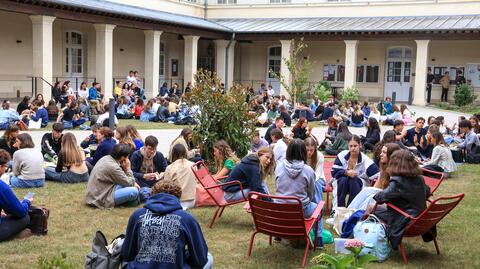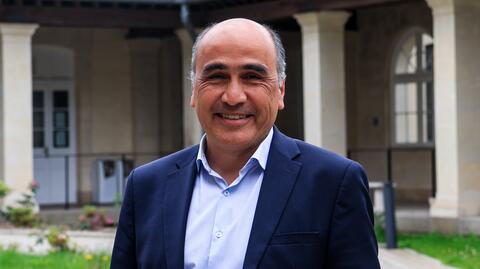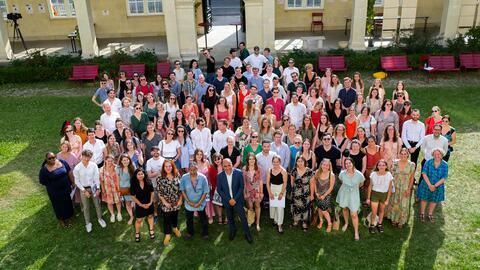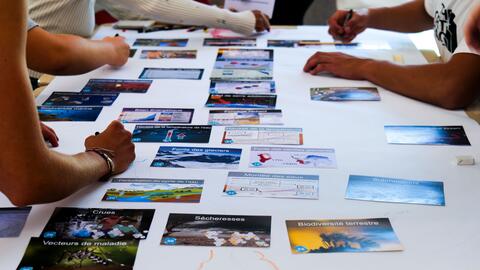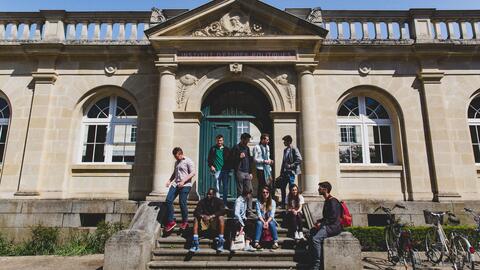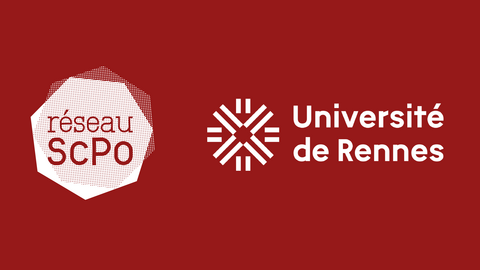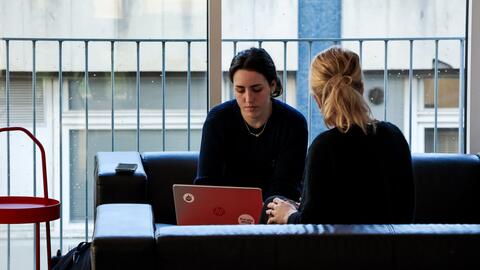Collectively developed and two years in the making, our mission statement establishes a common road map for meeting today’s challenges. It can be summed up in one sentence: “A school anchored in people, to never stop learning and take care of the world, together.” Our mission statement will inspire numerous initiatives in the coming years and spark new forms of cooperation.
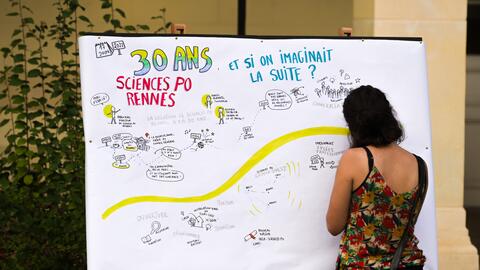
What is our mission for the years ahead?
What can we contribute to a world in transition?
How can we offer future generations of students an education that equips them to meet the challenges of the 21st century?
The consultation process
Everyone who makes our school what it is — students, faculty, researchers, administrative and technical teams, members of the Board of Directors and alumni — took part in a broad consultation process. They were joined by institutions, regional and national media, policy institutes and elected officials in the region. In total, over one hundred interviews were conducted between 2020 and 2022.
The consultation identified the following major ambitions for the future:
- teaching critical thinking skills and objectivity as a forum in which to build moderated thinking and regenerate political thought
- igniting the desire for knowledge and learning to take action to transform the world
- a new outlook on the world via international cooperation, equal opportunity policies and new fields of learning, including design, the sciences, arts and manual trades.
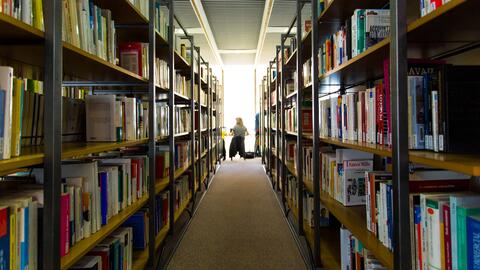
A center of humanist knowledge, anchored in western France and open to the world
- Sciences Po Rennes is a smaller-scale, accessible center of knowledge, attuned to the public, private and non-profit sectors, and a forum in which to study life in society.
- These principles are rooted in a humanist philosophy that promotes the pursuit of individual potential. This humanist vision must be explored in line with the issues faced by contemporary societies, including new technologies, the Anthropocene, feminism and equal opportunity.
- We espouse an educational model rooted in the western French tradition found in Rennes, Nantes, Brest and Caen. We draw on the strengths and energies of regions and partner with local leadership to help shape their transformation.
- We wish to take our school’s international outlook to the next level by enhancing cooperation with Northern European countries, Asian societies, and the English- and French-speaking world. Our institute of political science must focus even more on the challenges of a globalized world — the Anthropocene, feminism and more — as well as on other cultures.
“Never stop learning”
- At Sciences Po Rennes, we take the time to learn— and to select a major. Internal transfer options allow students to nurture and, if necessary, take their project in a new direction over time. Curiosity, not obligation, drives learning at Sciences Po Rennes, where we encourage a slower pace and pleasure in learning.
- At Sciences Po Rennes, we learn how to learn throughout life, by acquiring a multidisciplinary methodology, discovering a variety of disciplines, schools of thought, and theory.
- At Sciences Po Rennes, we develop analytical skills and a thought process that considers historical, sociological, economic and ecological factors at different scales — local, regional, national and international.
- At Sciences Po Rennes, we learn the importance of community, cooperation and teamwork.
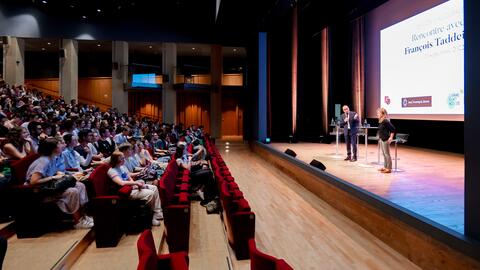
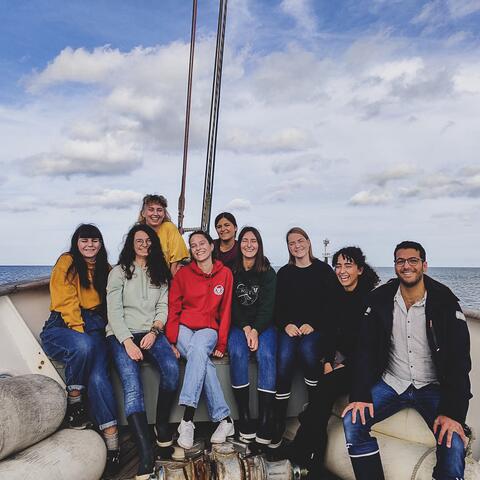
“Taking care of the world, together”
Sciences Po Rennes has a mission: to critically engage with the world, enrich citizen debate and build a community to help regions in western France meet the social and material challenges of the 21st century:
- Meeting global challenges for humanity and the living world: identifying common ground, preparing for a world of sobriety, and developing a symbiotic vision with the living world will all play a role in the sweeping transformation of our societies in the years ahead, with the goal of ensuring that Earth remains habitable.
- Uniting young people, giving them a voice and the means they need to take action: we nurture the desire to ‘redesign’ the world and push boundarie
- Reinventing institutions, strengthening democracy


